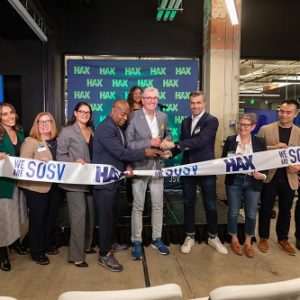Sheft and Anglin Discuss Clean Tech, Renewables and Entrepreneurship with Barrood
Earlier in March, James Barrood, former head of the New Jersey Tech Council, hosted Judith Sheft, executive director of the New Jersey Commission on Science, Innovation and Technology, and Steve Anglin, founder and CEO of WeSolar CSP (Princeton), for a wide-ranging talk on clean tech, renewables and entrepreneurship.
The discussion also touched on environmental justice and on making sure that, once new clean tech products are available, we’re not “cherry picking which communities or which individuals get an opportunity to take advantage of the new technology.”
The Clean Tech Market
Barrood asked Sheft to describe the clean tech market space. She answered that there is a renewed focus on clean and green tech with the new Biden administration and the United States getting back into the Paris climate agreement. The renewables sector is targeted to grow approximately 7 percent over the next five years, she noted. In addition, “you are seeing both individual states and cities stepping up” to reveal their own individual climate goals. An example is Governor Phil Murphy’s New Jersey Energy Master Plan.
Anglin stated that in other parts of the world there is more of an acceptance of renewable energy. Even China, which uses the largest percentage of fossil fuels, also has a large percentage of renewables. “They are really doing something compared to a couple of years ago.” He said, “The world is pretty much done with coal.”
Anglin added that, although Texas wasn’t prepared to freeze its turbines or liquid natural gas, the problem could have been alleviated if that state had energy storage like that offered by WeSolar CSP.
Anglin’s company offers Ayman Solar Concentrator (ACS) technology that is scalable and replaces microgrids. It also offers long-duration storage. “You can be off the grid and use renewable energy,” he said.
The company is also developing green hydrogen as an alternative to fossil fuels — for example, to be used in automobiles. “We can split water to provide hydrogen” in a clean way, and use it as an alternative to gasoline.
Funding Sources for Clean Tech
Sheft addressed the issue of funding for clean-tech entrepreneurs, saying that they should first look for non-dilutive funding sources such as Small Business Innovation Research/Small Business Technology Transfer (SBIR/STTR) grants from the U.S. Department of Energy, National Science Foundation, National Institutes of Health and the Department of Defense.
“There are also opportunities from [New Jersey’s] Commission on Science Innovation and Technology. We have two open clean-tech solicitations,” both designed to level the playing field for smaller companies.
One of them is a clean-tech seed grant program that provides up to $75,000 for companies that are applying to do research at Department of Energy TRLs [ technology readiness levels] three through seven. “We are trying to get funding for smaller companies,” she said.
The other is a voucher program to help offset the costs for small companies of accessing university facilities. “So, whether it’s Rutgers or Princeton or NJIT or Stevens or Montclair or Rowan or Stockton that has some specialized equipment that you need on-site, instead of 100 percent of the cost, you’ll pay 50 percent or 25 percent.”
Sheft also suggested that companies consider applying to the Israel-U.S. Bilateral Industrial Research and Development (BIRD) Foundation (Tel Aviv) for their grants. The BIRD Foundation allows companies that can find an Israeli partner and meet certain criteria to have 50 percent of the project’s development cost covered. [NJTechWeekly.com wrote about the BIRD Foundation here.]
Anglin mentioned that there is a lot of money set aside by the federal government to help Puerto Rico become more resilient, and companies with relevant solutions can compete for funding. He also noted that his colleague musician Akon Thiam (known as Akon) had started the Black Sunrise Fund, part of Akon Lighting America (Sanford, N.C.), which he cofounded. The Black Sunrise Fund specializes in decommissioning coal plants and promoting the training and hiring of minority workers, so they can find employment in the new economy. Barrood also mentioned that there are opportunities in New Jersey in offshore wind, as the state is building a big wind port in South Jersey.
But when we think about the clean economy, said Sheft, it’s not just about the money for entrepreneurs, but also about the new jobs that people will be able to move into and the training for those jobs.
She concluded her remarks by urging entrepreneurs to do their homework before they meet with funding sources. “You only have one chance to make a good impression,” she said.
Anglin agreed, but he added that although it’s sometimes very hard to get money for your project, “don’t give up.” And, he advised, surround yourself with people who are smarter than you are.




